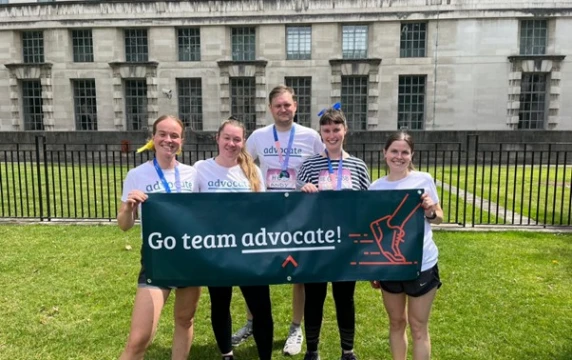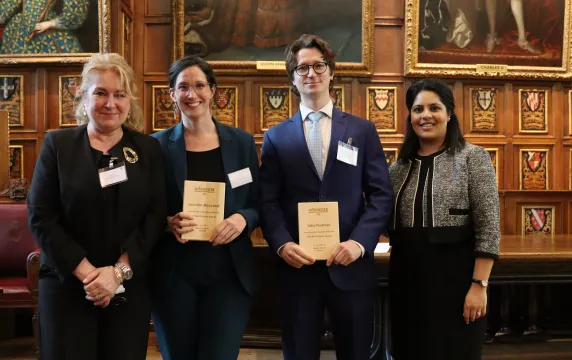Acting pro bono in the European Court of Human Rights in Pal vs the United Kingdom
By Aaron Rathmell, Serjeants’ Inn Chambers, London
“This case will be memorable for me, not least because I asked myself more than once why on earth I was doing more pro bono work.
I picked up the file after the domestic appeals had been described as misconceived or unarguable. I thought there was some merit in the core of Dr Rita Pal’s case and that she may have been treated unfairly at trial, which snowballed. She was raising points of general importance and needed assistance to present them and reply to the Government’s submissions.
The ECtHR judgment was about the decisions of a police force to arrest and charge Dr Pal, a Birmingham journalist, with an offence of harassment, following her publication of an article and Twitter posts in 2014 about another person, who complained to the police. The harassment charge was eventually discontinued by prosecutors
Dr Pal brought civil claims against the police in London for unlawful arrest and breach of her right to freedom of expression, Article 10 of the European Convention, arguing that her publications had been factual and that, in any event, the arrest and charge had been disproportionate.
The County Court Judge hearing the claims concluded that the actions of police had been lawful and simply did not engage Dr Pal’s Article 10 right. All her claims were dismissed, with costs. So were her appeals.
The case required a lot of hard work, but this was not Dr Pal’s fault. She deserved to be treated as any client should be, fee-paying or not. It was my duty to treat her with respect and to advance reasonable arguments as best I could.
I was also grateful that Hugh Tomlinson QC, the leading media and human rights lawyer, with experience in the ECtHR, was willing to help. For a busy QC to be so unprejudiced and generous with his time says something special about him of course, but it also says something about the pro bono ethic at the Bar.
The key question on application to the ECtHR was whether the police and domestic courts had recognised Dr Pal’s Article 10 right and carried out the appropriate balancing exercise between potentially competing rights: her freedom of expression on the one hand and the privacy and reputation interests of the person mentioned in the posts on the other.
The ECtHR decided, unanimously, that they had not. The Court declared a violation of Article 10 in relation to the arrest and prosecution of Dr Pal, and awarded her damages.
The judgment clarifies the right to freedom of expression as it applies to journalists and bloggers, and gives guidance for balancing that fundamental right against other rights which may be in issue when complaints are made to the police. Use of criminal laws on a person exercising their freedom of expression will only be justified in exceptional cases.
The judgment also reminds us that ‘the right to freedom of expression extends to information or ideas that offend’.
Pro bono work is rarely glamourous, but it is essential for access to justice – which, ultimately, all lawyers are concerned with.
And it is good experience. I have been volunteering for various charities since university: helping write letters, untangling merits, explaining costs risks, losing cases in employment tribunals and now, as it turns out, helping an applicant win in the Strasbourg Court. This experience informs all parts of my practice.
The Pal case was a genuine team effort, including the client, her previous pro bono lawyers, and Advocate’s caseworkers, who kept her hopes alive and made success possible.”







